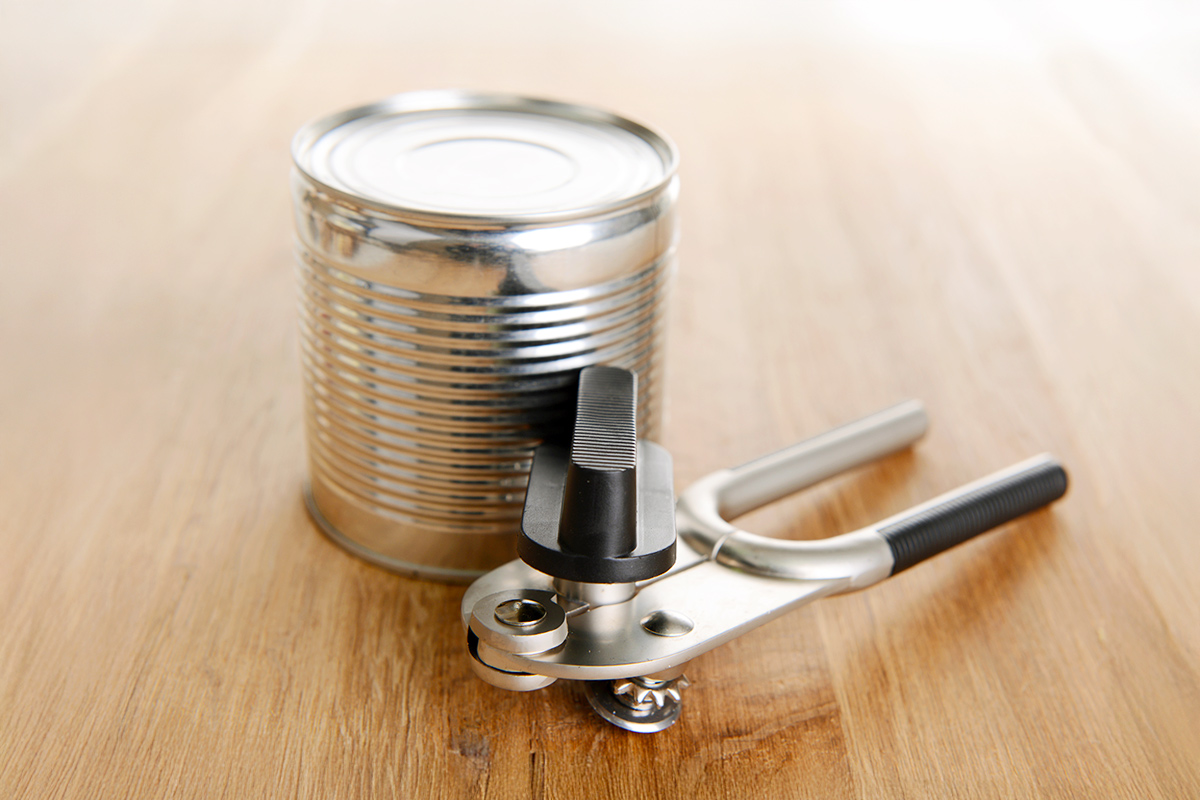Has your can opener seen better days? After opening cans of tuna, tomatoes, beans, soups, condensed milk, and everything else, the blade and gear of a can opener can get gunked up pretty fast. Fortunately, there’s a quick fix for that, and it involves an item you probably have plenty of in a kitchen drawer.
Say Goodbye to Gunk
If it’s been a while since you last cleaned your can opener (or if you’ve never cleaned it at all), you can dislodge those caked-on bits of food using a sheet of wax paper. You don’t need much — just a few inches to cover the can opener blade. Tear off a piece that’s about 4 to 6 inches wide. Fold it in half, then fold it in half again in the other direction to create a thick pad. All you have to do now is pinch your can opener down on the wax paper as you would any can and roll it over the paper. Do this several times on both sides of the folded wax paper for best results.
You’ll see crud, food buildup, and gunk transfer onto the paper as you run the tool over it. Not only does this trick clean your can opener, but the wax also lubricates the gear, keeping it running smoothly.
If you don’t have any wax paper, you can use the same cleaning method with a paper towel or parchment paper, although they won’t provide any slip to improve the can opener’s operation.
More from our network
House Outlook is part of Inbox Studio, which publishes content that uplifts, informs, and inspires.
How To Deep-Clean Your Can Opener
While wax paper will help loosen dried-on food residue, it’s no substitute for regular cleanings. To sanitize your can opener, take a clean dish towel or microfiber cloth and soak it in warm, soapy water. Run the towel over the gears and cutting mechanism to easily remove any residue. You can also use a scrub brush and dish soap to dislodge bigger pieces of food or get rid of buildup. However you choose to wash your can opener, be sure to let it dry thoroughly to prevent rusting. First, dry it with a towel, then leave it out in a dish rack overnight with the handles open for optimal airflow.
















